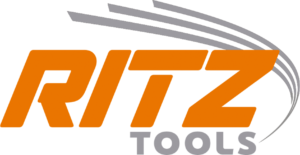Linemen play an indispensable role in maintaining our modern world’s electrical infrastructure. These skilled professionals brave heights, extreme weather conditions, and demanding work environments to ensure that we have access to reliable electricity. To accomplish their tasks safely and efficiently, linemen rely on a specialized set of tools and equipment. In this article, we will delve into the linemen’s toolkit, highlighting the must-have equipment for their safety and success.
Safety First: Protective Gear for Linemen
Safety is paramount in the world of linework, where even a small mistake can have severe consequences. The linemen’s toolkit starts with a robust set of personal protective equipment (PPE) to shield them from electrical hazards and other dangers they may encounter on the job.
- Hard Hat: A hard hat is a lineworker’s first line of defense against falling objects and head injuries. It often features a dielectric design to protect against electrical shocks.
- Safety Glasses: Protective eyewear is essential to shield linemen’s eyes from debris, sparks, and ultraviolet (UV) radiation. Clear and UV-resistant lenses are typical choices.
- Flame-Resistant Clothing: Linemen work around live electrical lines, making flame-resistant clothing crucial to minimize the risk of burns in case of an arc flash.
- Rubber Gloves: Rubber insulating gloves are a lineworker’s primary protection against electrical shock. These gloves are designed to provide insulation and prevent electrical current from passing through the body.
- Safety Harness: When working at heights, linemen use safety harnesses and fall arrest systems to prevent falls and ensure their safety while ascending and descending utility poles or towers.
Tools of the Trade: Essential Equipment for Linemen
Once linemen are properly protected, they need an array of specialized tools to perform their tasks effectively. These tools help linemen maintain electrical lines, troubleshoot issues, and perform routine maintenance.
- Lineman’s Pliers: Lineman’s pliers, also known as combination pliers, are versatile tools used for gripping, twisting, and cutting wires. They have a long, insulated handle to provide additional protection against electric shock.
- Cable Cutters: Cable cutters are designed to cleanly cut through electrical cables without leaving frayed edges. They come in various sizes to handle different cable diameters.
- Voltage Tester: A voltage tester helps linemen determine if a wire or circuit is live, ensuring they don’t accidentally touch an energized conductor.
- Bucket Truck: A bucket truck, also known as an aerial work platform, is essential for reaching elevated work locations, such as overhead lines and utility poles. It provides a stable platform for linemen to work from safely.
- Insulating Blankets: These insulating blankets are used to cover and protect live electrical components temporarily, allowing linemen to work on them safely.
Efficiency and Precision: Specialized Tools for Linemen
In addition to basic tools, linemen often use specialized equipment to improve efficiency and precision in their work. These tools help them perform their tasks more quickly and accurately.
- Hot Stick: A hot stick, also known as a “live line tool,” is an extendable pole with an insulated handle. It allows linemen to manipulate electrical components from a safe distance, reducing the need to work on energized lines directly.
- Tensioning Equipment: For tasks involving the installation and maintenance of overhead electrical cables, tensioning equipment is crucial. It helps maintain the proper tension in the lines to prevent sagging and ensure reliable power transmission.
- Grounding Equipment: Linemen use grounding equipment to safely discharge electrical energy before working on a circuit or electrical equipment. This prevents electrical shock accidents.
- Conductor Grips: Conductor grips or wire grips are specialized tools that help linemen secure and manipulate electrical conductors and cables, making it easier to install and repair power lines.
Building a Strong Foundation for Linemen
Linemen are the unsung heroes who keep our electrical systems running smoothly, often working in challenging conditions. Their success and safety depend on having the right tools and equipment at their disposal. From protective gear that shields them from harm to specialized tools that enhance their efficiency, each item in the lineman’s toolkit plays a crucial role in ensuring the uninterrupted flow of electricity to our homes and businesses.
In this article, we have explored the essential equipment that every lineman should have in their toolkit. By prioritizing safety and equipping themselves with the right tools, linemen can continue to excel in their vital role, maintaining our electrical infrastructure and ensuring our communities stay powered and connected.
What are the essential tools for a lineman’s toolkit?
- Answer: A lineman’s toolkit includes various essential tools and equipment, such as lineman’s pliers, cable cutters, voltage testers, hard hats, safety glasses, flame-resistant clothing, rubber gloves, safety harnesses, bucket trucks, and insulating blankets. These tools are vital for safety and efficiency in electrical line work.
Where can I buy lineman’s tools and equipment?
- Answer: Lineman’s tools and equipment can be purchased from specialized suppliers, electrical supply stores, or online retailers. Ritz Tools is a well-known supplier of lineman’s tools and equipment, offering a wide range of high-quality products designed for lineworkers.
What safety gear do linemen need when working on electrical lines?
- Answer: Linemen require specific safety gear, including hard hats, safety glasses with UV protection, flame-resistant clothing, rubber insulating gloves, and safety harnesses. This gear is designed to protect lineworkers from electrical hazards and other dangers they may encounter while on the job.
What are the advantages of using hot sticks in linework?
- Answer: Hot sticks, also known as live line tools, provide several advantages for linemen. They allow lineworkers to manipulate electrical components from a safe distance, reducing the need to work on energized lines directly. This enhances safety and efficiency in electrical maintenance and repair tasks.
How do linemen maintain and care for their tools?
- Answer: Linemen should regularly inspect and maintain their tools to ensure they remain in good working condition. This includes cleaning, lubricating moving parts, and checking for signs of wear or damage. Proper storage and transportation of tools in a tool bag or toolbox can also extend their lifespan and reliability.


